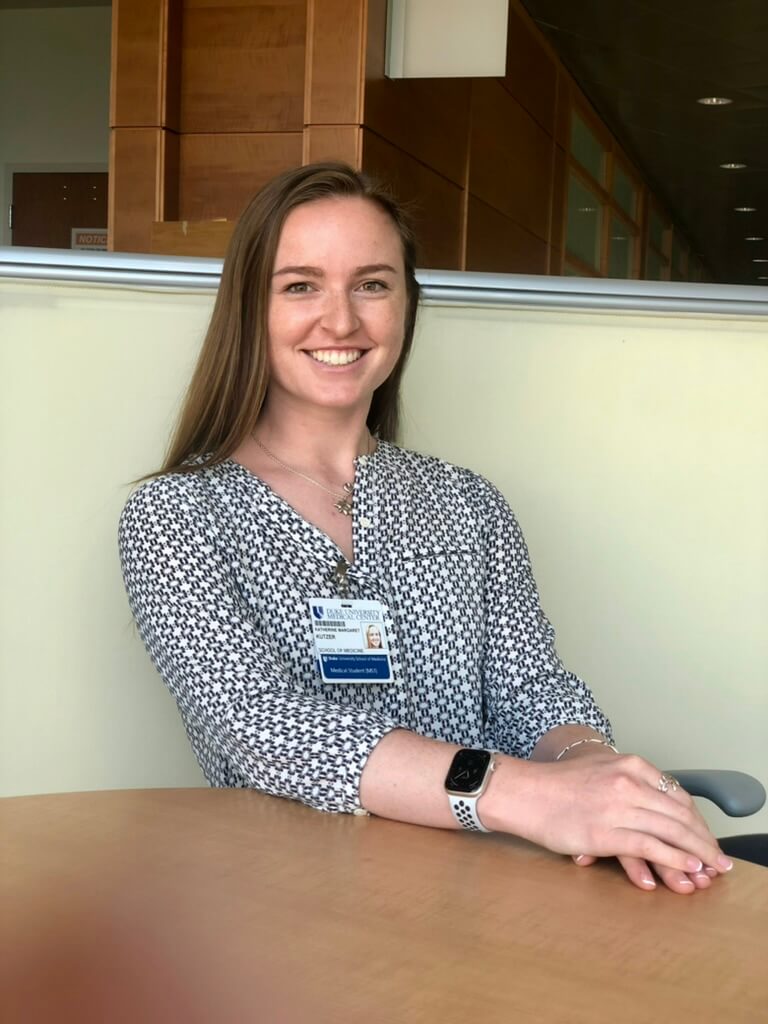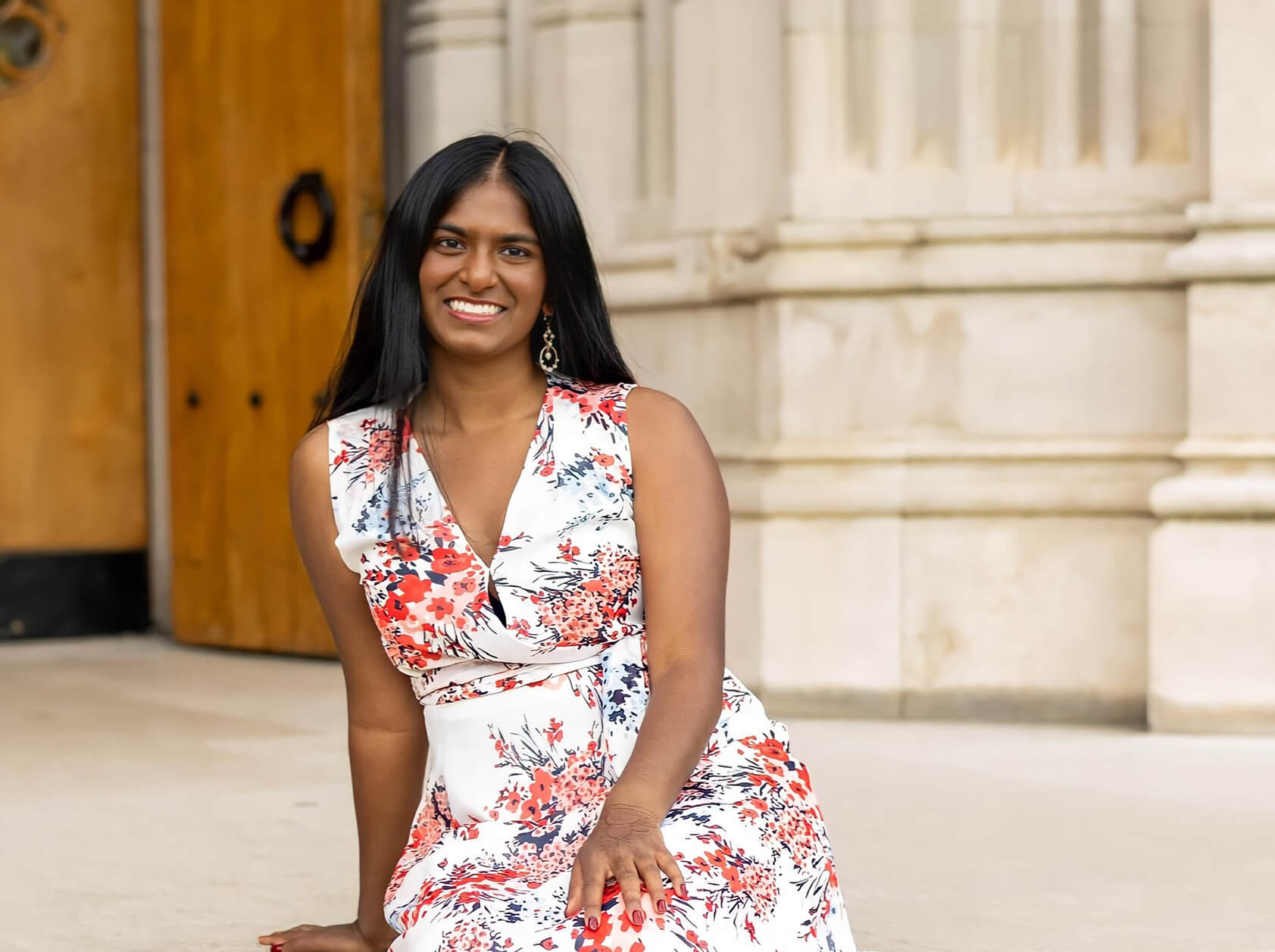Published August 23, 2022, last updated on September 13, 2022 under Alumni Stories
The death of global health pioneer Paul Farmer in February 2022 affected the Duke community deeply. Farmer, a Duke alumnus and former member of the DGHI Board of Advisors, was a guiding light and inspiration for many in the institute. We asked some students and recent graduates, including several who benefitted from DGHI’s Paul Farmer Fund, which supports summer research experiences for undergraduate students, to share reflections on how Farmer's legacy has shaped their learning and career goals.
Kate Kutzer
Paul Farmer Fund recipient, Class of 2021
During my first year at Duke, I enrolled in a Writing 101 course about Medical Anthropology. I thought it would be a great introduction to my journey as a premed student. One particular essay stood out to me: “An Anthropology of Structural Violence” by Paul Farmer. His efforts to address the AIDS and tuberculosis epidemics in Haiti represented “militant anthropology,” as he demonstrated that it is not enough to research how health systems can better support vulnerable populations. It is also our responsibility to take action. While at Duke, I went on to major in Biology and minor in Cultural Anthropology. I also increased my engagement with underserved communities within the U.S. and abroad.
Determined to embrace this commitment to action, I traveled to New Delhi, India, with nine other Stanford and Duke students in the Rubenstein-Bing Athletes in Civic Engagement Program (ACE), where I first witnessed the effects of extreme poverty on health. I realized that the biological basis of medicine could only go so far and that external factors such as socioeconomic status, environment, and other social determinants were just as influential. I returned to the U.S. inspired to commit myself to improving healthcare for the underserved. I became a Bass Connections Research Scholar at Duke and helped start a project with a local Federally Qualified Health Center (FQHC) and was later selected to lead the Duke University Help Desk. The program recruits and trains student volunteers to connect patients to community resources after a medical visit and offer ongoing support. Our model improves integrated care and addresses social needs while providing an experiential learning opportunity for students. While I was at Duke, our team trained over 30 volunteers, tripled our workforce, and expanded to the broader Duke Health System.
After spending my gap year as a Research Assistant at the Harvard T.H. Chan School of Public Health investigating cancer disparities, I will be returning to the Duke School of Medicine within the Primary Care Leadership Track. I hope to carry on Paul Farmer’s work by continuing to address health disparities throughout my career as a doctor.

Zoe Hughes

Master of Science in Global Health, 2022
I was first introduced to Dr. Paul Farmer when I was a sophomore at Harvard. I took a course titled SWS25: Case Studies in Global Health: Biosocial Perspective that he taught alongside other prominent global health figures. This class served as my academic introduction to global health. (A visit to Tanzania three years prior had been my experiential introduction.) Dr. Farmer saw global health as I did: an appalling injustice to which we all owed our fight.
At the time I took this course, I wanted to be a physician and work in underserved areas in Africa. I felt a moral obligation to see good health reach those in greatest need of it. Dr. Farmer’s teachings pushed me to consider how I could make good health reach more than just the individuals I could treat as a physician, how I could do as much good for the world’s poorest and sickest as I possibly could.
Dr. Farmer’s teachings were formative for my career in global health, a career that has spanned so far five international health experiences across eight countries. Yet also, a career whose only worthwhile measurement will be work in service of and impact on others. Dr Farmer’s teachings sent me in the direction of philosophies such as liberation theology and effective altruism, and individuals such as Claude Ake and John Rawls. In these philosophies and individuals, I found company for my radical view of what justice in global health looks like, and strength for my lifelong pursuit of it.
Dr. Farmer’s teachings have been with me for the start of my global health career and I am sure they will be with me until the end.
Ramya Ginjupalli
Global health major, Class of 2022
As a global health student and scholar, I have long looked up to Dr. Paul Farmer. As a pioneer within our field, Dr. Farmer inspired thousands of students, including myself, to study and conduct research within the public and global health spheres with a particular focus on marginalized populations and low and middle-income countries.
Dr. Farmer’s work within social inequalities and their affect on health outcomes inspired me to join the Duke Center for Global Reproductive Health to research the effects of stigma on health seeking behaviors for women with HPV and cervical cancer in Kisumu, Kenya. As I pursue a career within public and global health, Dr. Farmer’s legacy continuously reminds me of not only the personal and individual impact we can have, but also our possibility to inspire the systemic change required to decrease inequities in healthcare delivery.

Don Nguyen

Master of Science in Global Health, 2022
As I apply to medical schools this summer and in the wake of Dr. Paul Farmer's passing, I want to share how appreciative I am for his unknowing impact in fostering my personal hopes to serve as a global health physician. I remember years ago in college reading Mountains Beyond Mountains and watching Bending the Arc. At the time, he felt like a fictional hero, representing the good of humanity at its very core and what it means to dedicate your life to helping others. Years later, I connected with him at Duke as a graduate student, an experience that still feels surreal. I am certain I will always carry with me the missions and lessons he imparted through his talks. I hope that now, Dr. Farmer can rest and look down from a better place, knowing the impact that he made in inspiring the next generation of global health advocates."
Lydia Smeltz
Paul Farmer Fund recipient, Class of 2020
My experience as a Dr. Paul Farmer grant recipient allowed me the opportunity to begin to understand how research can address health equity and improve population health. Through my research project, I critically examined the ability of a community resource navigator program to successfully meet the needs of persons with disabilities. While I found it satisfying to work to improve population health at the local level, I longed for a wider impact.
One in four Americans lives with a disability, comprising our nation's largest minority. With the knowledge I gained through my research project, I have subsequently engaged in advocacy at the state and nation level - publishing op-eds in both my local paper and the American Journal of Public Health. Currently, I am designing and evaluating medical education curriculum centered on disability health. This project aims to expand my reach to the next generation of healthcare providers and ultimately, improve healthcare for patients with disabilities.
All of my current interests and goals can be traced back to the experience I was afforded through the Dr. Paul Farmer grant. Dr. Farmer dedicated his life to serving others and improving health equity and his legacy has allowed me to envision how my life can do the same for persons with disabilities.
